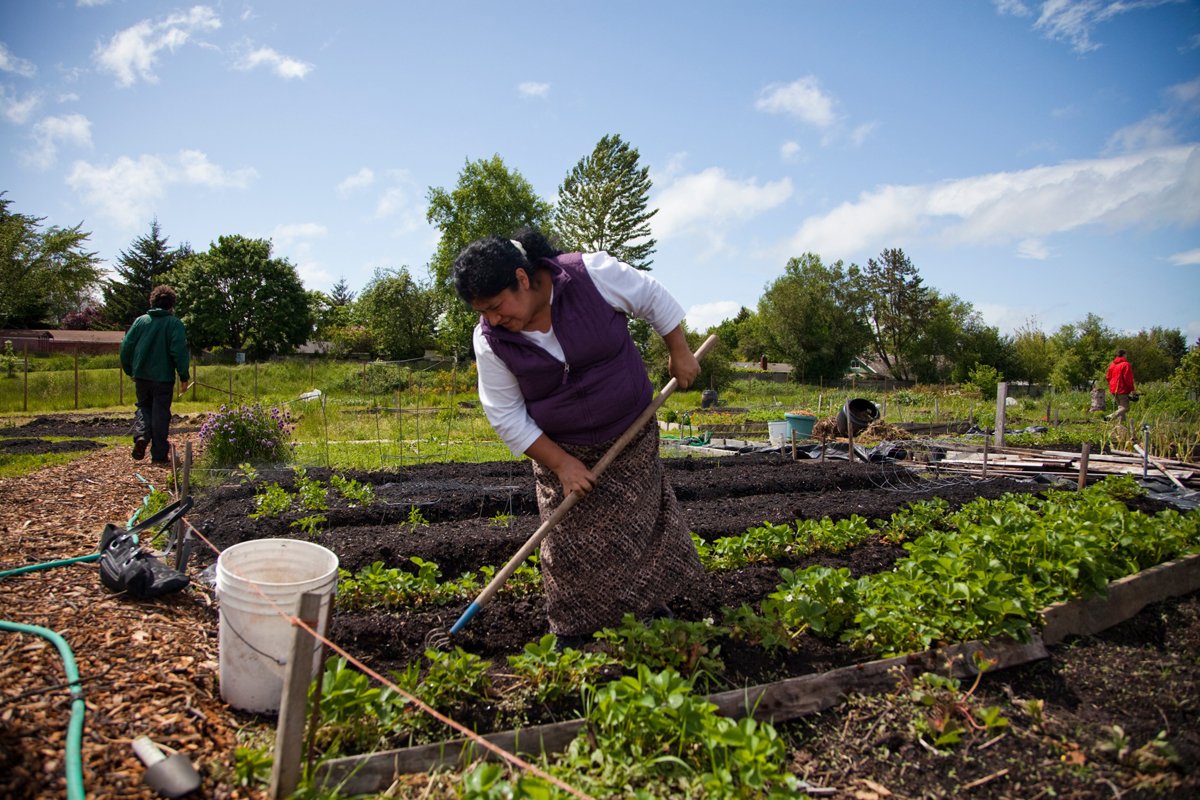As the heat turns up on an unparalleled environmental and food crisis, family farming empowerment is critical to stabilize the climate and undo global hunger levels that have plateaued for three years in a row. The state of food security and nutrition is such that one in 11 people globally and one in five in Africa face hunger as of 2023.
Time seems to stand still as current levels of undernourishment compare to those in 2008-2009. Against this backdrop, participants of a global World Rural Forum webinar titled ‘Climate Finance Mechanisms for Family Farmers’ Organizations’ held on July 30, 2024, delved into available climate finance mechanisms for small-holder farmers.
This is a first of a series of global webinars organized by the World Rural Forum in preparation for COP29 in Baku, Azerbaijan, where key elements of climate finance will be decided. Global climate finance architecture is complex and evolving, necessitating family farmers’ organizations’ active participation in shaping its future.
There appears to be a growing consensus on the inextricable nature of food and climate. Few argue that we can solve the climate crisis with our present form of high input industrial agriculture. Agroecology is emerging as the most effective form of climate resilient agriculture; and farmer organizations, as landscape stewards and food producers, are increasingly perceived as essential to scale agroecology up and out. Through peer to peer learning, they work with their constituencies to shift farmer practice while holding governments accountable to climate-friendly food systems. And yet, in a troubling trend, when it comes to climate finance, they are woefully underfunded.
Agroecology Fund advisor Jyoti Fernandes, coordinator of the Policy, Lobbying and Campaigning work of the Landworkers Alliance, a small farmers union in the UK and a member of Agroecology Fund long-term partner La Via Campesina, represented the Agroecology Fund in this webinar with a presentation about climate finance mechanisms, opportunities, challenges and proposals for change from a grassroots perspective. Other presenters included representatives from Global Environmental Fund and the Green Climate Fund.
“The Agroecology Fund pushes funds directly to organizations which represent small farmers practicing agroecology worldwide and, the networks which represent those farmers and Indigenous people working with the landscapes around them to produce food for themselves and their local communities,” Jyoti Fernandes, Agroecology Fund Advisor said.
Nearly 90 percent of the world’s 570 million farms are owned and operated by families putting food on their table, and in other households around the world. In value terms, family farming accounts for at least 80 percent of the world’s food. Recognising the pivotal role family farmers play, this series of webinars seeks to empower family farmers’ organizations to tackle climate change and address fundamental issues at the heart of COP29, by providing practical tools to face global challenges. In this regard, Fernandes told participants that supporting family farmers’ ongoing climate adaptation efforts to better cope with volatile weather patterns is a top priority for the Agroecology Fund.
“Our support is multifaceted—it could be through seeds and seed networks, knowledge sharing on soil, soil health, water management and agroforestry, through the agroecology training networks and peer-to-peer learning models, or towards increasing food and nutrition security. It has also been proven, all over the world, that agroecology is an effective and sustainable approach to promote climate resilience,” she said.
Fernandes, who is also a family farmer, stressed that nearly all farmers are facing difficulties financially due to an international financial system which largely does not serve or protect smallholder farmers. However, there are three ways through which funds can be received for climate resilience – adaptation, mitigation and Loss and Damage.
She emphasized the need to develop stronger models to illustrate that grassroots actors can and should be financed to build climate resilience. She noted that “business as usual” means that industrialized food systems – often selling false solutions – remain ahead of the queue to receive available funds, taking the lion’s share.
In all, Fernandes highlighted how amidst an unprecedented climate onslaught, family farmers already significantly invest in climate adaptation to ensure global food security. Stressing that their contribution to ensuring agrifood systems are more efficient, inclusive, resilient and sustainable are not in doubt, she noted that they received only 0.3 percent of international climate finance in 2021.
“Indigenous peoples, peasants, and smallholder farmers in general are taking on the biggest share of restoration and biodiversity regeneration efforts while still receiving less than two percent of the financing available. It is time to push for more funding through the Agroecology Fund to support ongoing activities at the community and grassroots level, and more so the work that family farms undertake on a day-to-day basis,” she emphasized.
Part of the solution, Fernandes said, is to explore participatory mechanisms as a way to involve grassroots farmers and networks and to highlight their contribution to climate adaptation and, in turn, expose existing funding gaps. Grants or government programs – for example, credit to cooperatives – are needed to meet the specific needs of family farmers.
Ms. Fernandes brought into sharp focus the urgent need for family farmers’ organizations to define and benefit from the future of climate financing and national climate plans, as the size and diversity of the world’s food basket depends largely on these farmers’ successful approach to ongoing multiple, complex and pressing global challenges.
